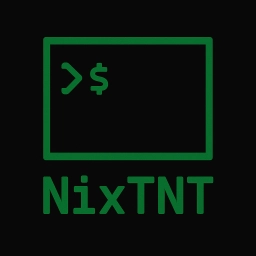Unlocking the Power of *Nix: The Backbone of Modern Computing
published: , updated: , by nixtnt
Operating systems are the unsung heroes behind every computing device, quietly managing the complex dance between hardware and software. Among these, *nix operating systems have earned a stellar reputation for their flexibility, stability, and raw power. From academic labs to sprawling enterprise cloud infrastructures, *nix systems are the trusted workhorses that keep modern computing running smoothly.
What is an Operating System?
At its core, an operating system (OS) is the essential software that connects a computer’s hardware to the applications we rely on daily. It handles everything from managing memory and allocating system resources to executing processes, processing user input, and controlling peripherals like keyboards and printers. Without an OS, your hardware would be little more than a collection of lifeless circuits, and applications would have no stable platform to run on efficiently or securely.
What Are *Nix Operating Systems?
So, what exactly are *nix operating systems? The term "*nix" refers to UNIX and UNIX-like systems that follow the design principles of the original UNIX, developed in the 1970s. These systems are celebrated for their rock-solid reliability, multitasking prowess, and strong security features. They embrace a modular design philosophy and the idea that "everything is a file," which simplifies system management and scripting.
One of the defining strengths of *nix systems is their powerful shell environments. These command-line interfaces let users automate tasks, control processes, and manipulate files with incredible precision and flexibility. This makes *nix OSes a favorite in academic research, software development, and production environments where stability and security are non-negotiable.
Popular *Nix Operating Systems
The *nix family is diverse, with several well-known members tailored to different needs:
Linux Distributions: Open-source and highly customizable, Linux distros like Ubuntu, Fedora, and Debian are widely used for everything from personal desktops to massive servers and development platforms.
BSD Variants: FreeBSD, OpenBSD, and their siblings focus on performance, security, and stability. They’re often found powering network appliances and server environments where reliability is critical.
macOS: Apple’s macOS combines a polished, user-friendly interface with a UNIX-certified core called Darwin. It delivers the power and security of UNIX in a package designed for mainstream consumers and creative professionals alike.
Comparing Linux, BSD, and macOS
| Feature | Linux Distributions | BSD Variants | macOS |
|---|---|---|---|
| Source Model | Open-source, community-driven | Open-source, conservative | Commercial with open-source UNIX core (Darwin) |
| Popular Examples | Ubuntu, Fedora, Debian | FreeBSD, OpenBSD | macOS (Apple) |
| Primary Use Cases | Servers, desktops, development | Network appliances, servers | Consumer desktops, creative work |
| Security Focus | Strong, frequent updates | Very strong, security-oriented | Strong, integrated Apple security |
| User Interface | Varies widely, highly customizable | Often command-line focused | Polished GUI, user-friendly |
| Philosophy | Flexibility and customization | Stability, performance, security | UNIX power with mainstream ease |
| Community Support | Large, diverse global community | Smaller, focused communities | Apple ecosystem and developer support |
*Nix operating systems have become the foundation of countless technological ecosystems—from powering web servers and supercomputers to supporting developers and tech enthusiasts worldwide. Their open-source heritage, security-first design, and proven resilience make them the go-to choice for professionals and organizations that demand performance, control, and reliability.
Whether you’re a developer, system administrator, or simply a tech enthusiast, understanding the power of *nix systems unlocks a world of possibilities in the ever-evolving landscape of modern computing.
